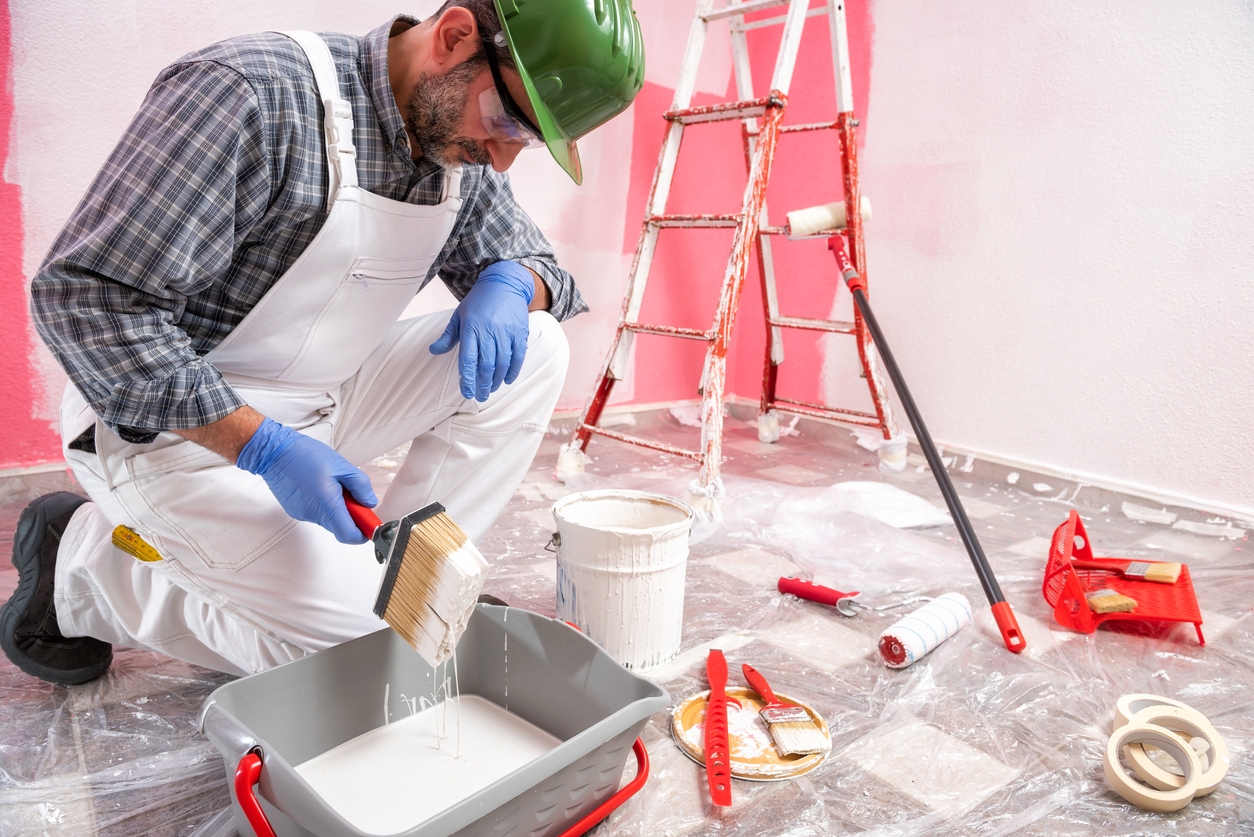Repainting your home or business is a big decision, and choosing the right painting contractor can make all the difference. With so many options, finding the best contractor can feel overwhelming. How do you ensure you’ve made the right choice? These tips will guide you through the process of selecting a skilled and reliable contractor, helping you achieve the perfect paint job for your needs.
Tips for Hiring the Best Painting Contractor
When hiring a painter for your business or home, consider these tips:
Do your research and get referrals.
The first step in finding a great painting contractor is to do your homework. Ask friends, family, and neighbors if they have any recommendations. Personal referrals are often the most reliable way to find quality contractors. Additionally, check online resources and review platforms to identify potential contractors in your area. Look for those with consistently positive reviews and a solid reputation.
Evaluate Online Reviews
Online reviews can provide valuable insights into a contractor’s reputation. Look at both positive and negative reviews to get a balanced perspective. Pay attention to how the contractor responds to complaints, which can indicate their commitment to customer satisfaction.
Obtain Multiple Quotes
Once you have a list of potential contractors, contact them for quotes. It’s a good idea to get at least three quotes to compare. Ensure that each quote is detailed and covers materials, labor, and timelines. This will help you understand what each contractor offers and at what price.
Check References
After narrowing down your options, ask each contractor for a list of recent clients. Contact these references to learn about their experiences. Ask about the quality of work, how well they stick to their timeline and their overall satisfaction. This step is crucial in verifying the contractor’s reliability and expertise.
Assess their qualifications
Now that you have some quotes and references, it’s time to dig deeper into each contractor’s qualifications. Make sure they have the necessary licenses and insurance. This not only protects you but also indicates professionalism. Look for certifications or memberships in professional organizations, which can signal a commitment to quality and industry standards.
Review their Portfolios
Ask to see a portfolio of their previous work. This will give you a sense of their style and the quality of their work. If possible, visit some of their completed projects to see the results firsthand. This step helps ensure that their work meets your expectations.
Understand the Contract

Before any work begins, it’s essential to have a clear and detailed contract. The contract should outline the scope of the project, the materials to be used, the timeline, and the payment schedule. Ensure you understand every part of the contract and don’t hesitate to ask for clarification on any points.
Negotiate Prices
Price is an essential factor, but it shouldn’t be the only one. While it’s tempting to go with the lowest bid, be cautious. Extremely low quotes can be a red flag for subpar work or unexpected additional costs. Discuss potential discounts or package deals, but prioritize quality and reliability over the lowest price.
Set a communication plan.
Effective communication is critical to a successful project. Set up clear communication channels with your contractor and agree on how you will receive updates. Regular progress reports help ensure that everything stays on track and allow you to address any issues promptly.
Set a timeline.
Discuss and agree on a realistic timeline for your project. Understand that delays can happen, but have a plan for how they will be handled. Clear expectations about the timeline help keep the project on track.
Schedule inspections.
Schedule inspections at critical milestones to check on the progress and quality of the work. Before making the final payment, do a final walkthrough to ensure all work meets your standards and any issues are resolved.
Make sure to do this before handing over the final payment for the work to ensure everything was done according to your agreement. Discuss any items that seem wrong and allow them the opportunity to correct the problem. Hold your final payment until the item is corrected because once you have given them the payment, they may be unable to return to make corrections.
Ensure follow-up.
After the project is completed, ensure there is a follow-up visit to address any touch-ups or corrections. Keep records of all contracts, receipts, and communications for future reference. This documentation can be valuable if any issues arise later and provide a reference for future projects.
Contract Negotiation Tips

When negotiating a contract with a potential painting contractor, here are some tips to keep in mind:
Clarify payment terms.
When negotiating your contract, ensure that the payment terms are clear and agreed upon by both parties. A down payment is typically required, with the remaining balance paid upon completion. Avoid paying the total amount upfront to protect yourself against unfinished or unsatisfactory work.
Specify materials and brands.
Be specific about the materials and brands to be used in your project. This ensures you get the quality you expect and prevents substitutions that might compromise the final result.
Include detailed project scope.
A detailed project scope should outline all aspects of the job, including preparation work, number of coats, and any special requirements. This helps prevent misunderstandings and ensures that you and the contractor have the same expectations.
Common Pitfalls to Avoid
Don’t fall into these pitfalls when choosing a contractor:
Overlooking contractor credentials
Ensure your contractor is adequately licensed and insured. Working with unlicensed contractors can lead to poor workmanship and limited recourse in case of issues. Check their credentials before signing any contracts.
Not getting everything in writing
Verbal agreements can lead to misunderstandings. Always get all agreements in writing, including project scope or timeline changes. This documentation protects both you and the contractor.
Ignoring red flags
Pay attention to red flags such as vague estimates, unwillingness to provide references, or a lack of a written contract. Trust your instincts, and don’t hesitate to walk away if something feels off.
Conclusion
Finding the right painting contractor involves thorough research and clear communication. By following these tips, you’ll be better equipped to select a skilled and reliable contractor who can deliver a high-quality paint job for your home or business. Take your time, ask the right questions, and prioritize quality to ensure a successful project.
If you want a reputable contractor in the Bay area, contact Custom Painting, Inc. today for a free consultation and quote. Call us at 925-294-8062 to schedule an appointment. Our experienced team is committed to providing top-notch service and exceptional results. Let us help you bring your vision to life with our professional painting services.

